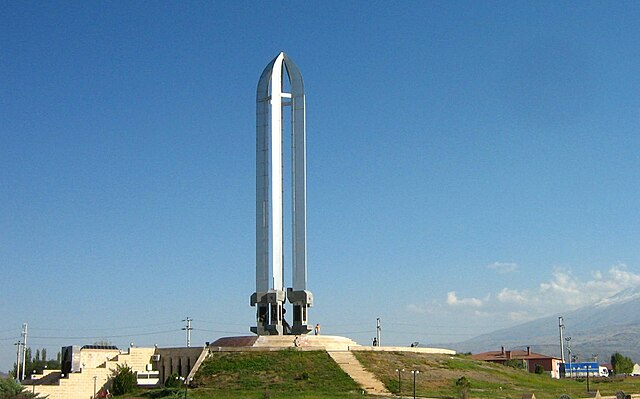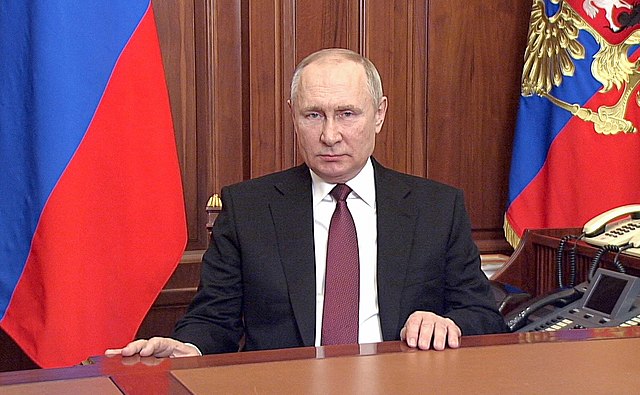Accusation in a mirror (AiM) is a technique often used in the context of hate speech incitement, where one falsely attributes one's own motives and/or intentions to one's adversaries. It has been cited, along with dehumanization, as one of the indirect or cloaked forms of incitement to genocide, which has contributed to the commission of genocide, for example in the Holocaust or the Rwandan genocide. By invoking collective self-defense, accusation in a mirror is used to justify genocide, similar to self-defense as a defense for individual homicide.
The strategy was used by Joseph Goebbels.
The Iğdır Genocide Memorial and Museum in eastern Turkey promotes the pseudohistorical notion that it was Armenians who committed genocide against the ruling Turks, rather than the other way around.
Russian President Vladimir Putin
Incitement to genocide is a crime under international law which prohibits inciting (encouraging) the commission of genocide. An extreme form of hate speech, incitement to genocide is an inchoate offense and is theoretically subject to prosecution even if genocide does not occur, although charges have never been brought in an international court without mass violence having occurred. "Direct and public incitement to commit genocide" was forbidden by the Genocide Convention in 1948. Incitement to genocide is often cloaked in metaphor and euphemism and may take many forms beyond direct advocacy, including dehumanization and accusation in a mirror.
Audience makes a Nazi salute during Adolf Hitler's speech of 30 January 1939, in which he threatened "the annihilation of the Jewish race in Europe!"
Jews killed during the Warsaw Ghetto uprising, described in the Stroop Report as "bandits destroyed in battle"
Streicher at the 1938 Nuremberg rally before the destruction of Hans-Sachs-Platz synagogue






